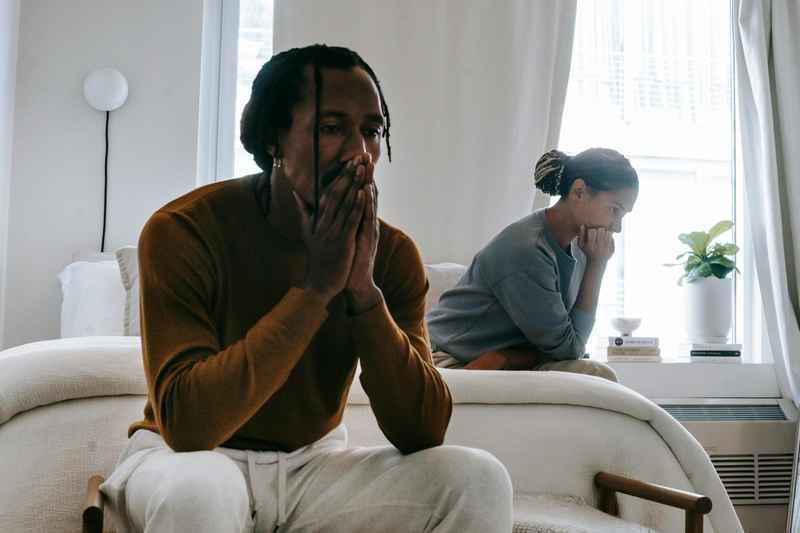Why Love Fades & How to Keep It
Have you ever wondered why relationships can feel like such a rollercoaster? One moment, everything feels effortless, full of joy and connection. Then, without warning, the spark dims, and the focus can easily shift to what feels challenging or unfulfilling. In moments like these, it’s easy to question if this change is “normal” or if we’re meant to feel this way. Today, let’s look into what actually happens beneath the surface—specifically, how our nervous system and emotional patterns influence our relationships and our experience of love itself.
In this blog post, you’ll learn…
- How love triggers a physiological response in our nervous system and why that initial rush fades
- The impact of change on relationships and why it’s natural to grow as individuals within a partnership
- How emotional patterns, if unrecognized, can sabotage connection
- The significance of focus and why it shapes our relationship experiences
- Why long-term love is a conscious choice requiring intentional focus on the positive aspects of your partner
Love is a Nervous System Event
When we first fall in love, there’s a rush—a biochemical response in the brain that leaves us feeling elated, energized, and more optimistic. This is due to an increase in feel-good neurotransmitters like dopamine and serotonin, which, in essence, prepare us for bonding and attachment. It’s a fascinating reaction, one that connects our emotions with our physiology. However, just like a spark, this intense phase naturally fades over time. As the neurochemical high subsides, relationships often enter a quieter stage, one that doesn’t feel quite as exhilarating but has the potential for something deeper and more enduring.
This natural change can lead some people to feel disappointed, mistakenly believing that “the magic is gone.” But if we understand that love’s initial intensity is a short-lived nervous system event, we can see this shift not as a loss but as an invitation to build a more intentional and lasting connection.

Change is Constant
One thing we can count on in life is change, and relationships are no exception. As individuals, we’re always growing, shaped by new experiences, perspectives, and goals. This evolution isn’t just personal; it impacts the way we relate to others. In relationships, both partners may change in ways that feel unfamiliar or even challenging.
For some, this natural evolution can feel like a threat, as if the very foundation of the relationship is shifting. But recognizing change as an inherent part of being human—and viewing our partner’s growth as a positive sign of their continued self-awareness—allows us to hold space for each other’s journeys. In doing so, we create an atmosphere of trust and mutual respect, allowing both partners to evolve without feeling that their individual growth is a threat to the relationship.
Emotional Patterns Shape Reactions
Our emotional lives are shaped by patterns—deeply ingrained responses and habits we often don’t even notice. In relationships, these patterns can easily show up as insecurities, defensiveness, or fears. Perhaps we feel hurt by a casual remark, or we feel the need to protect ourselves in certain situations. Often, these responses are rooted in past experiences, some dating back to childhood, and we can unknowingly bring them into our current relationships.
These emotional patterns can create misunderstandings or even lead to criticism and blame, which in turn creates cycles of disconnection. Without realizing it, we can end up projecting old fears onto our partner or reacting to past hurts instead of the present moment. Becoming aware of these patterns and understanding that they come from within allows us to respond with greater clarity and compassion. This awareness becomes an invitation to break free from old cycles and interact with our partner from a place of present, mindful awareness rather than reactivity.
Focus Determines Outcome
It’s said that where attention goes, energy flows, and this is especially true in relationships. In relationships, we don’t experience what we intend but rather what we focus on. If our focus drifts too often toward frustrations, minor irritations, or a partner’s perceived flaws, these aspects start to dominate our experience. This focus on what’s “wrong” can create a sense of disconnect and even resentment, making it difficult to see the positive aspects of our partner and the relationship as a whole.
On the other hand, when we choose to focus on what we appreciate in our partner, something shifts. Recognizing even the smallest positive qualities or moments allows us to feel gratitude, reigniting a sense of warmth and admiration. This isn’t about ignoring real issues but about choosing where to direct our energy. When we consistently bring our focus back to what’s working or what we value in each other, the relationship benefits from a renewed sense of positivity, helping it to flourish over time.
Breaking the Emotion Loop
Thoughts and emotions are closely intertwined, and in relationships, they can form powerful loops. If we dwell on a negative thought, it often produces an uncomfortable feeling, which in turn triggers more similar thoughts. For example, if we’re feeling overlooked, we may start noticing behaviors that seem to confirm this perception, which only deepens the initial emotion. This loop becomes a self-reinforcing cycle that can lead us to feel trapped within negative feelings about our partner or relationship.
But just as we can create this loop, we can also shift it by choosing to focus on moments of gratitude or love. Simple, intentional shifts in thought can help break the cycle, allowing us to experience a different emotion in place of frustration or sadness. Over time, focusing on positive aspects creates a new pattern, one that strengthens feelings of love and appreciation, breaking free from the limitations of the old loop.
Long-Term Love Requires Conscious Effort
Infatuation is easy, effortless. But when that fades, it’s the conscious work that allows love to deepen and mature. This deeper love is built upon a foundation of understanding, awareness, and intentional effort. It requires a commitment to actively focus on the positives in the relationship while embracing the ebbs and flows as part of the journey.
Lasting love asks us to stay present, to recognize when we’re slipping into negative emotional patterns, and to refocus our attention back on what matters. By shifting our perspective from blame to appreciation, we create an environment where love can continue to thrive, even as both individuals inevitably grow and change.
The Power of Focus Training
Training ourselves to focus on what’s good in our partner isn’t about creating a superficial sense of positivity but about building a genuine habit that supports lasting connection. When we regularly focus on what we love about our partner, it becomes a practice that reinforces itself, creating a feedback loop of positive emotion, gratitude, and loving actions.
This isn’t a once-and-done task but rather an ongoing practice that becomes easier over time, reshaping our internal dialogue. Over time, this habit has the power to renew feelings of admiration and respect, helping to create a relationship that feels both rewarding and resilient.
Lasting Love and Inner Work
Ultimately, cultivating lasting love involves an ongoing commitment to both understanding and growth. It requires that we look within to understand our emotional patterns, maintain a focus on what matters, and embrace change as an inherent part of any long-term relationship. When we do this, love becomes something greater than the initial spark; it becomes a partnership based on intentionality, presence, and resilience.
The Inner Foundation Series can support this journey, offering tools and insights into emotional awareness, focus training, and cultivating a love that endures through change. This approach can deepen your understanding of self and relationship, laying a foundation for connection that lasts.

